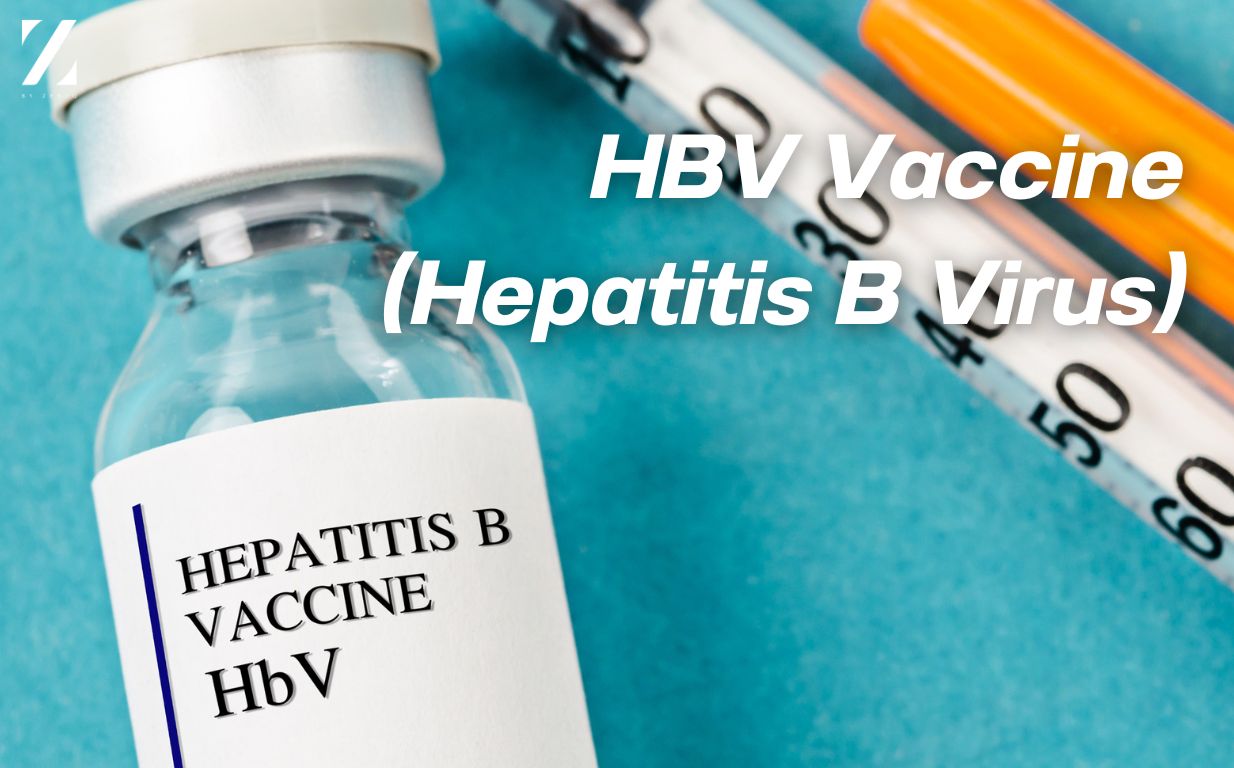The Hepatitis B Virus vaccine is used to prevent Hepatitis B viral infection, that damages the liver. Hepatitis B can lead to chronic liver problems, including cirrhosis and liver cancer. This vaccine works by stimulating the immune system to produce antibodies against the hepatitis B virus, which helps prevent future infections.
How Does HBV Vaccine Work?
The HBV vaccine contains harmless components of the Hepatitis B Virus, usually using the virus’s surface antigen. This stimulates the immune system to recognize and fight the virus. Upon receiving the vaccine, your immune system produces antibodies to fight the virus’s antigen. If you are later exposed to the actual virus, your body will be prepared to fight it off and prevent infection.
Who Must Receive the HBV Vaccine?
The HBV Vaccine is recommended for the following groups:
- Infants: The vaccine is given as part of the childhood vaccination schedule, usually starting after birth.
- Children and Adolescents: Children who did not receive the vaccine at birth or during early childhood should get vaccinated.
- Adults at Risk:
- Healthcare workers and those working in medical settings
- Those who have close contact with individuals who have chronic Hepatitis B infection
- People with multiple sexual partners or those at high risk of sexually transmitted infections
- Individuals who use illicit drugs or share needles
- People with chronic kidney disease, including those who need dialysis
- Individuals with HIV or weakened immune systems
- Travelers to countries with high rates of Hepatitis B infection
- People with chronic liver disease, including cirrhosis or chronic hepatitis C, who may be at higher risk for liver problems
Who Doesn’t Need the HBV Vaccine?
- People with previous HBV Infection: If a person has already had a Hepatitis B infection or has immunity against the virus (for example, has recovered from an infection), they may not need the vaccine.
- People allergic to yeast: Since the vaccine is produced from yeast proteins, individuals who are allergic to yeast may need to avoid this vaccine.
- People with severe allergic reactions to a previous HBV vaccination: If someone has had a severe allergic reaction to a previous HBV vaccine, they should not receive it again.
Timelines for the HBV Vaccine
The HBV vaccine is given as an intramuscular injection, usually in the upper arm.
The most common injection schedule is:
- First dose (Dose 1)
- Second dose: 1 month after the first dose
- Third dose: 6 months after the first dose
Benefits of the HBV Vaccine
- Prevents Hepatitis B infection: The vaccine is highly effective in preventing Hepatitis B infection, which can lead to chronic liver disease, cirrhosis, and liver cancer.
- Safe: The vaccine has been used worldwide for many decades and has been proven to be safe for most people.
- Long-term protection: Completing the full vaccine schedule provides long-lasting protection.
- Prevents transmission: Reduces the spread of the virus, particularly among healthcare workers and individuals at high risk.
- Prevents complications from Hepatitis B: Reduces the risk of developing chronic liver disease, cirrhosis, and liver cancer.
Side Effects of the HBV Vaccine
Common side effects include pain at the injection site, fever, and fatigue. Severe reactions are rare.
Conclusion
The HBV vaccine is an effective and safe method to prevent Hepatitis B infection and the associated severe liver problems. While most people should receive the vaccine, high-risk groups or individuals who have previously been infected may not need it. The vaccine is generally safe and provides long-lasting protection.

